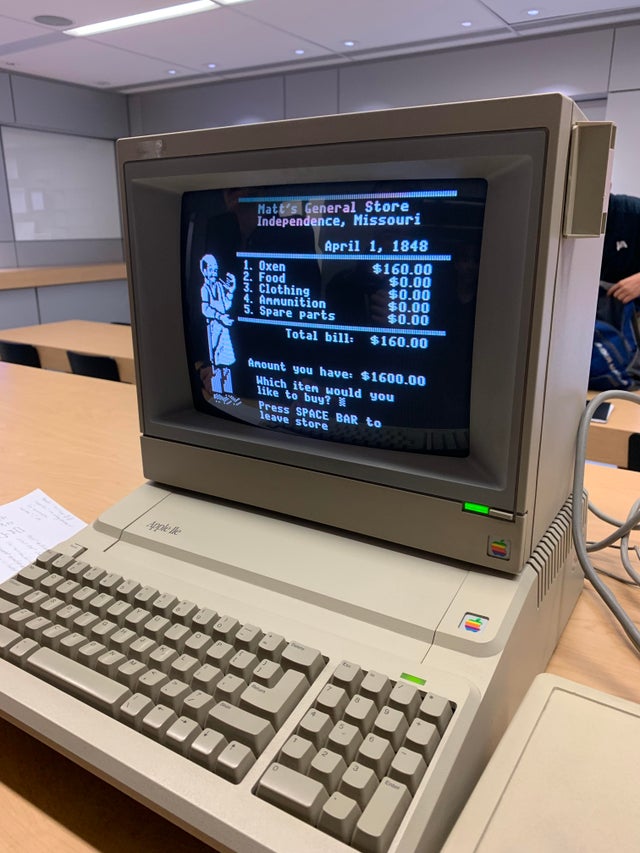

It was a hallmark in elementary schools worldwide from the mid-1980s to mid-2000s, as school computers came bundled with the game. It was included in the book 1001 Video Games You Must Play Before You Die. The Oregon Trail was extremely successful, selling over 65 million copies, after ten iterations over forty years. The game is simple and was created to teach school children about the life of a 19th century pioneer on the Oregon Trail.
#Oregon trail game for mac mac#
It was then put out on the market in 1974 by MECC. The Oregon Trail II (Mac abandonware from 1996) To date, Macintosh Repository served 1261514 old Mac files, totaling more than 240770.2GB The Oregon Trail is a video game published in 1990 on DOS by MECC. Of spinoffs (such as The Yukon Trail and The Amazon Trail) and the parody The Organ Trail. The Oregon Trail is an older, very popular computer game that was developed by Bill Heinemann, Don Rawitsch, and Paul Dillenberger back in 1971. Three student teachers, Don Rawitsch, Bill Heinemann, and Paul Dillenberger, created The Oregon Trail in 1971 to help Minnesota schoolchildren learn American History. Publishers who have acquired rights to it, as well as inspiring a number As the longest-published, most successful educational game of all time, The Oregon Trail has blazed a path for the use of video games in learning. Has since been released in many editions by various developers and The game is the first entry in the Oregon Trail series, and The Oregon Trail is a classic game in which you have to travel west in the 1800s via the Oregon Trail. The player assumes the role of a wagon leader guiding his or her party of settlers from Independence, Missouri, to Oregon's Willamette Valley on the Oregon Trail via a covered wagon in 1848. The original game was designed to teach school children about the realities of 19th century pioneer life on the Oregon Trail. The Oregon Trail is a computer game originally developed by Don Rawitsch, Bill Heinemann, and Paul Dillenberger in 1971 and produced by the Minnesota Educational Computing Consortium (MECC) in 1974.


 0 kommentar(er)
0 kommentar(er)
